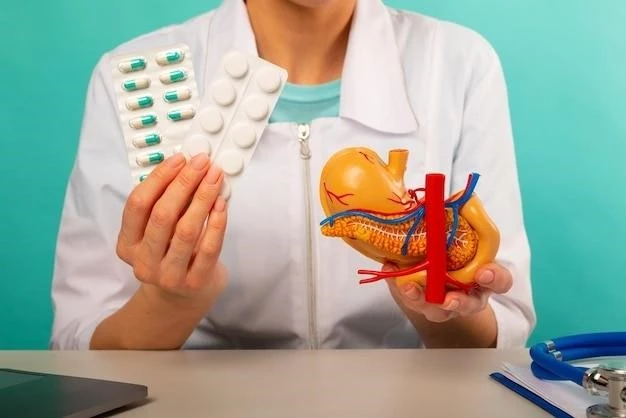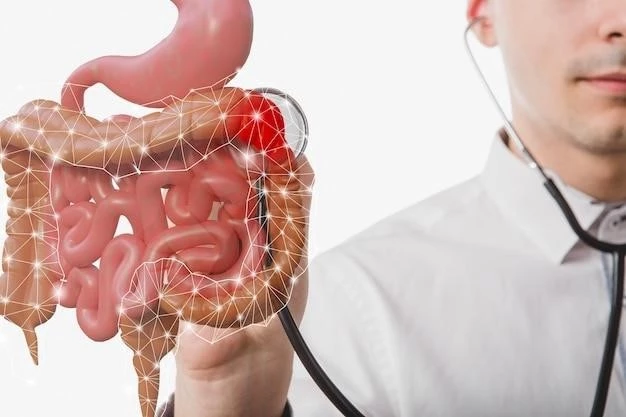Introduction to Short Bowel Syndrome
Dive into the world of short bowel syndrome, a condition impacting the body’s ability to absorb nutrients․
Overview of Short Bowel Syndrome
Short bowel syndrome, a condition impacting the body’s absorption of nutrients from shortened or damaged small bowel, presents challenges in maintaining adequate nutrition and managing symptoms effectively․

Causes of Short Bowel Syndrome
Short bowel syndrome can be caused by surgical removal of parts of the small intestine or congenital conditions․
Surgical Removal of Intestine
Short bowel syndrome can occur due to the surgical removal of parts of the small intestine, often necessitated by conditions like Crohn’s disease, cancer, injuries, and blood clots․
Congenital Conditions
Congenital conditions can contribute to short bowel syndrome, where individuals are born with missing or damaged parts of the small intestine, affecting their ability to absorb nutrients effectively․

Symptoms of Short Bowel Syndrome
Short bowel syndrome can manifest with symptoms like chronic diarrhea, weight loss, dehydration, and malnutrition․
Diarrhea and Weight Loss
Short bowel syndrome commonly presents with chronic diarrhea and weight loss as prominent symptoms due to the body’s compromised ability to absorb nutrients effectively․
Dehydration and Malnutrition
Dehydration and malnutrition are common consequences of short bowel syndrome, resulting from the body’s inability to absorb essential nutrients effectively․
Diagnosis of Short Bowel Syndrome
Diagnosing short bowel syndrome involves specific criteria and medical tests to confirm the condition accurately․
Criteria for Diagnosis
Diagnosing short bowel syndrome involves specific criteria related to the length of the remaining small bowel post-resection, coupled with symptoms like diarrhea and malabsorption․
Medical Tests Involved
Medical tests involved in diagnosing short bowel syndrome may include imaging studies, blood tests, intestinal absorption tests, and endoscopic procedures to assess the extent of malabsorption and evaluate the condition of the remaining bowel․
Treatment Options for Short Bowel Syndrome
Manage short bowel syndrome with nutrition support, medications, and surgical interventions to enhance nutrient absorption․
Nutrition Support
Nutrition support plays a crucial role in managing short bowel syndrome, aiding in providing essential nutrients and supporting overall health․
Medications and Surgery
Short bowel syndrome treatment options may include the use of medications and surgical procedures to address symptoms and improve nutrient absorption in affected individuals․
Management and Prevention of Complications
For individuals with short bowel syndrome, effective management involves a multidisciplinary approach and long-term care strategies to prevent complications and optimize quality of life․
Role of Multidisciplinary Clinicians
Multidisciplinary clinicians play a crucial role in managing short bowel syndrome, providing comprehensive care and support to improve patient outcomes and quality of life․
Long-Term Care Strategies
Long-term care strategies for short bowel syndrome focus on ongoing monitoring, dietary adjustments, medication management, and addressing potential complications to support the patient’s overall well-being․
Living with Short Bowel Syndrome
Discover how individuals manage life with short bowel syndrome, exploring quality of life considerations and available support resources․
Quality of Life Considerations
Living with short bowel syndrome involves considering various factors affecting one’s quality of life, including dietary adjustments, managing symptoms, and accessing necessary support services․
Support Resources for Patients
Various support resources are available for individuals with short bowel syndrome to offer guidance, assistance, and community connection for managing the condition effectively․
Ongoing Research and Future Developments
Stay informed about the latest advancements in short bowel syndrome treatment and promising therapies currently in development․
Advancements in Treatment
Explore the latest advancements in treating short bowel syndrome, including innovative therapies and enhanced treatment modalities aimed at improving patient outcomes․
Promising Therapies on the Horizon
Exciting new therapies are emerging on the horizon for short bowel syndrome, offering hope for improved outcomes and enhanced quality of life for affected individuals․
